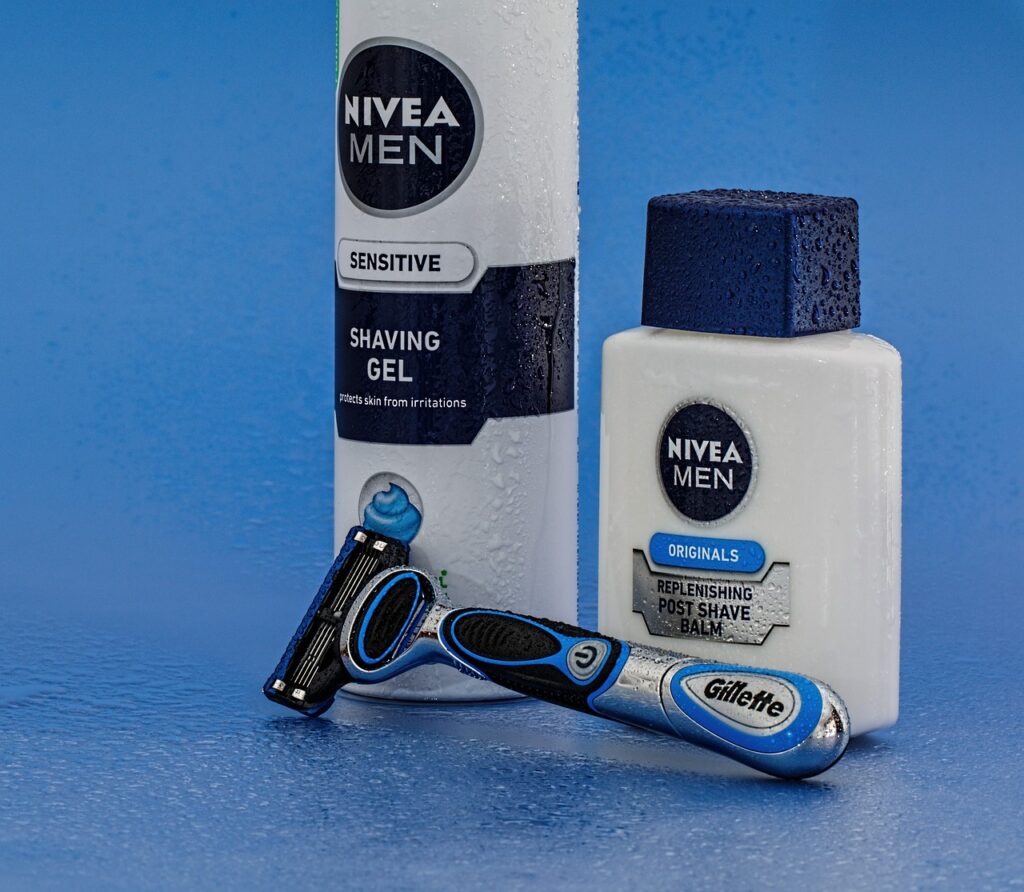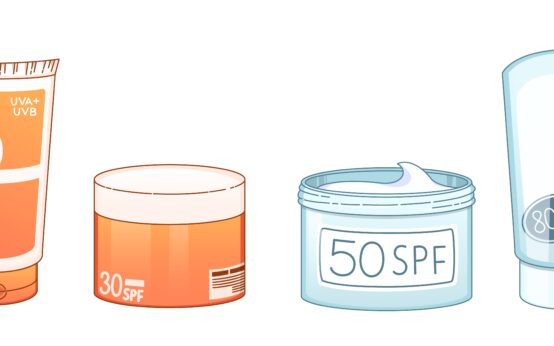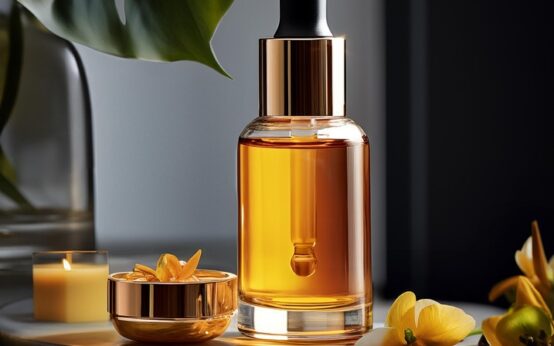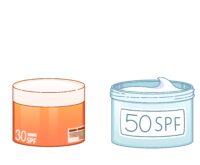Have you ever found yourself confused about the best skin care practices because you’ve heard conflicting advice? You’re not alone. With the wealth of information available today, it’s easy to adopt some misconceptions. In skincare, these myths can not only lead you astray but could even be harmful to your skin. So, let’s set the record straight by debunking the top 10 skincare myths.

Myth 1: You Don’t Need Sunscreen on Cloudy Days
It’s a common belief that sunscreen is only for sunny days. However, the truth is, about 80% of UV rays can pass through clouds. This means your skin can still suffer from UV damage even when the sun is hidden. Consistent use of sunscreen every day is essential, regardless of the weather. It protects you from harmful rays that contribute to premature aging and increase the risk of skin cancer.
Why Sunscreen Is Non-Negotiable
Sunscreen acts as a barrier against UVB and UVA rays. UVB rays cause sunburn, while UVA rays penetrate deeper, causing long-term skin damage like wrinkles. To be effective, your sunscreen should have an SPF of at least 30 and be broad-spectrum. Even during winter or when indoors near windows, sunscreen can shield your skin from potential damage.
Myth 2: Drinking Water is Enough for Hydrated Skin
While hydration is key for overall health, the idea that drinking a lot of water alone will keep your skin hydrated is a myth. Your skin’s hydration largely depends on the outermost layer being intact and healthy. External application of moisturizers is crucial as they prevent water loss and maintain skin barrier function.
The Role of Moisturizers
Moisturizers help in trapping water in your skin and forming a protective layer. Ingredients like hyaluronic acid and glycerin are excellent at drawing moisture into the skin. To achieve well-hydrated skin, a combination of adequate water intake and the use of the right moisturizing products is recommended.
Myth 3: Oily Skin Doesn’t Need Moisturizer
Many believe that applying moisturizer to oily skin will only make it oilier. Surprisingly, skipping moisturizer can trigger increased oil production. When your skin is deprived of moisture, it compensates by producing more oil.
Choosing the Right Moisturizer
Opt for oil-free or non-comedogenic moisturizers specifically designed for oily skin. Gel-based or water-based moisturizers are also good choices as they hydrate without clogging pores. The key is to nourish your skin without adding extra oil.
Myth 4: Natural Ingredients Are Always Safe
In recent times, “all-natural” has become synonymous with safe and beneficial. However, not every natural ingredient suits every skin type. Even natural products can cause irritation, allergies, or sensitivities in certain people.
Understanding Natural Products
It’s important to conduct patch tests before introducing new natural products into your routine. Also, remember that the term “natural” is not regulated, and products labeled as such might still contain harmful chemicals. Look for products that focus on safety and efficacy over marketing buzzwords.

Myth 5: You Have to Spend a Fortune for Effective Skincare
Contrary to what many believe, expensive does not always mean better. Many budget-friendly products are just as effective as their high-end counterparts.
Balancing Quality and Cost
Learn to read ingredient lists and understand what works for your skin type. Several affordable brands are available on the market that offer high-quality formulations. Prioritize active ingredients and ignore the price tag. Often, simple products with proven ingredients like vitamin C, retinol, or niacinamide can deliver excellent results.
Myth 6: Makeup with SPF is Enough
Relying on makeup that contains SPF provides insufficient protection. Most people don’t apply makeup in the quantities required to achieve the advertised SPF protection.
Makeup vs. Sunscreen
It’s crucial to apply a dedicated sunscreen as the base layer of your skincare regimen. Additional makeup with SPF can act as a bonus protection, but it should never replace your primary sunblock. Always opt for a proper sunscreen to ensure you’re adequately covered.

Myth 7: Acne is Only from Poor Hygiene
The belief that acne is always due to dirty skin is a harmful myth. While hygiene plays a role, factors like hormones, stress, and diet also significantly contribute to breakouts.
Causes of Acne
Acne occurs when oil and dead skin cells clump together in pores, providing an environment for bacteria to thrive. While keeping your face clean is essential, over-washing can actually irritate the skin and worsen acne. A balanced regimen that involves cleansing, moisturizing, and targeted treatments is more effective.
Myth 8: You Can Shrink Your Pores
Despite popular belief, it is not possible to change the size of your pores permanently. Many products claim to shrink pores, but they usually just temporarily tighten the skin or reduce oiliness.
Dealing with Pores
While you cannot technically shrink your pores, you can minimize their appearance. Products containing salicylic acid can help reduce oil buildup, making pores appear smaller. Consistent exfoliation can also help to remove dead skin cells that make pores look larger.

Myth 9: Anti-aging Products Are Only for Mature Skin
Starting anti-aging products early can be beneficial. Contrary to the notion that they’re only for older skin, beginning a preventive measure in your late twenties or early thirties can help delay signs of aging.
Early Prevention is Key
Ingredients like antioxidants, peptides, and retinols can be part of your routine to maintain skin elasticity and prevent premature aging. Consider products that boost collagen production and protect against environmental stressors for long-term skin health.
Myth 10: Exfoliation Should Be Aggressive for Effectiveness
Some believe that scrubbing your face aggressively will lead to better results. However, this can do more harm than good, damaging the skin barrier and causing irritation.
Gentle Exfoliation Methods
Effective exfoliation depends on the product used rather than the intensity of scrubbing. Chemical exfoliants like alpha-hydroxy acids (AHAs) and beta-hydroxy acids (BHAs) are effective at removing dead skin cells gently. Stick to exfoliating 2-3 times a week and listen to your skin’s needs.
Conclusion
By understanding and debunking common skincare myths, you’re well on your way to achieving healthier, more vibrant skin. Remember, every individual’s skin is unique, and what works for others may not work for you. Always trust your skin’s response and consult with skincare professionals when in doubt. Adopting a well-informed routine that focuses on proven methods can make a significant difference in your skincare journey.


 How To Create A Skincare Routine For Oily Skin
How To Create A Skincare Routine For Oily Skin  The Ultimate Guide To Sunscreen: What You Need To Know
The Ultimate Guide To Sunscreen: What You Need To Know  How To Choose The Right Moisturizer For Your Skin Type
How To Choose The Right Moisturizer For Your Skin Type  The Most Popular Skincare Trends Of 2024
The Most Popular Skincare Trends Of 2024  Glowing Skin Secrets: Natural Tips That Really Work
Glowing Skin Secrets: Natural Tips That Really Work  How To Exfoliate Your Skin Safely At Home
How To Exfoliate Your Skin Safely At Home  How To Create A Skincare Routine For Oily Skin
How To Create A Skincare Routine For Oily Skin  The Best Ingredients For Anti-Aging Skincare
The Best Ingredients For Anti-Aging Skincare  Natural Skincare 101: Everything you Need to Know
Natural Skincare 101: Everything you Need to Know  The Ultimate Guide To Sunscreen: What You Need To Know
The Ultimate Guide To Sunscreen: What You Need To Know  Guide to the Best Anti acne Products for Clear Skin
Guide to the Best Anti acne Products for Clear Skin  How To Choose The Right Moisturizer For Your Skin Type
How To Choose The Right Moisturizer For Your Skin Type